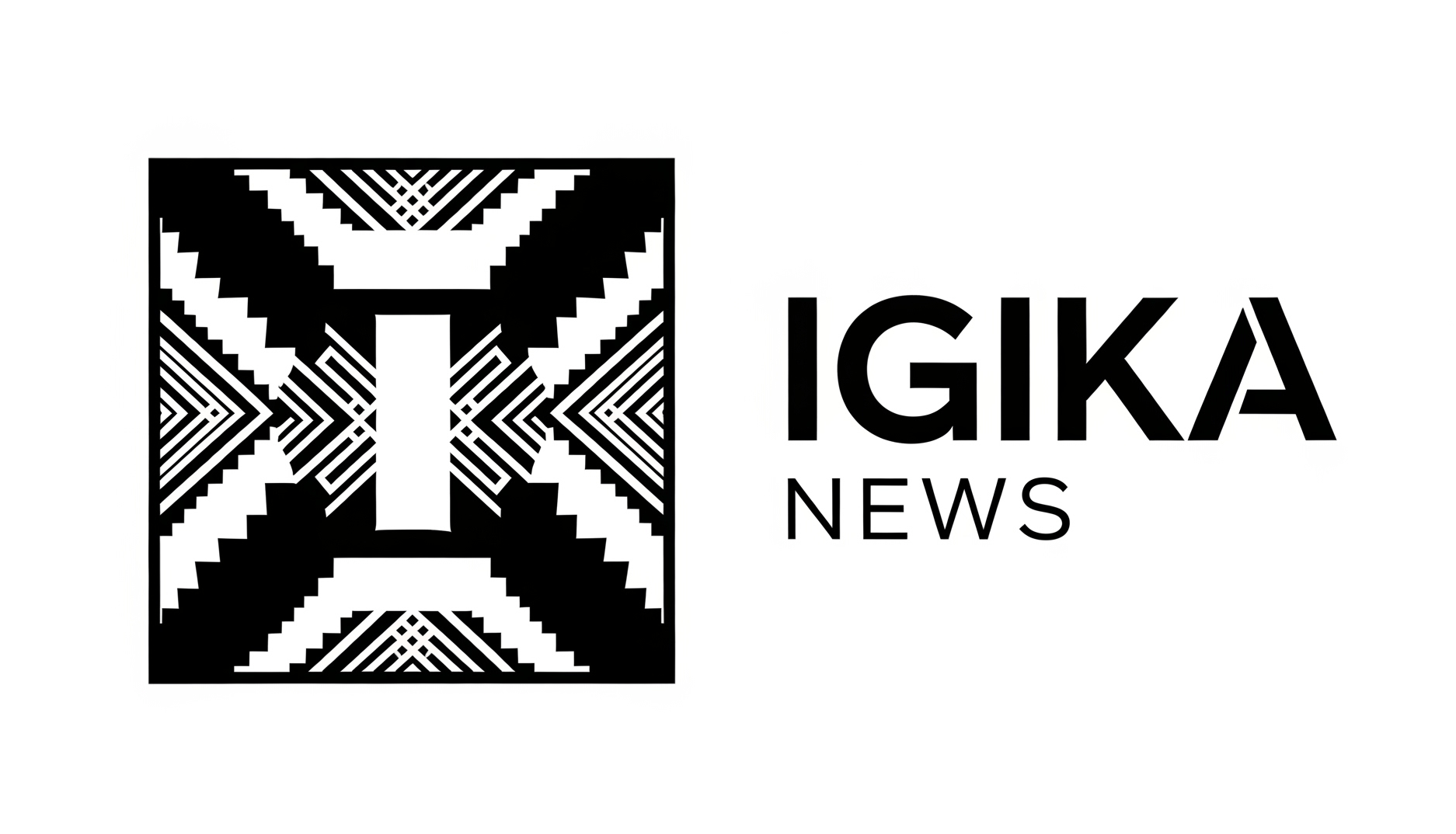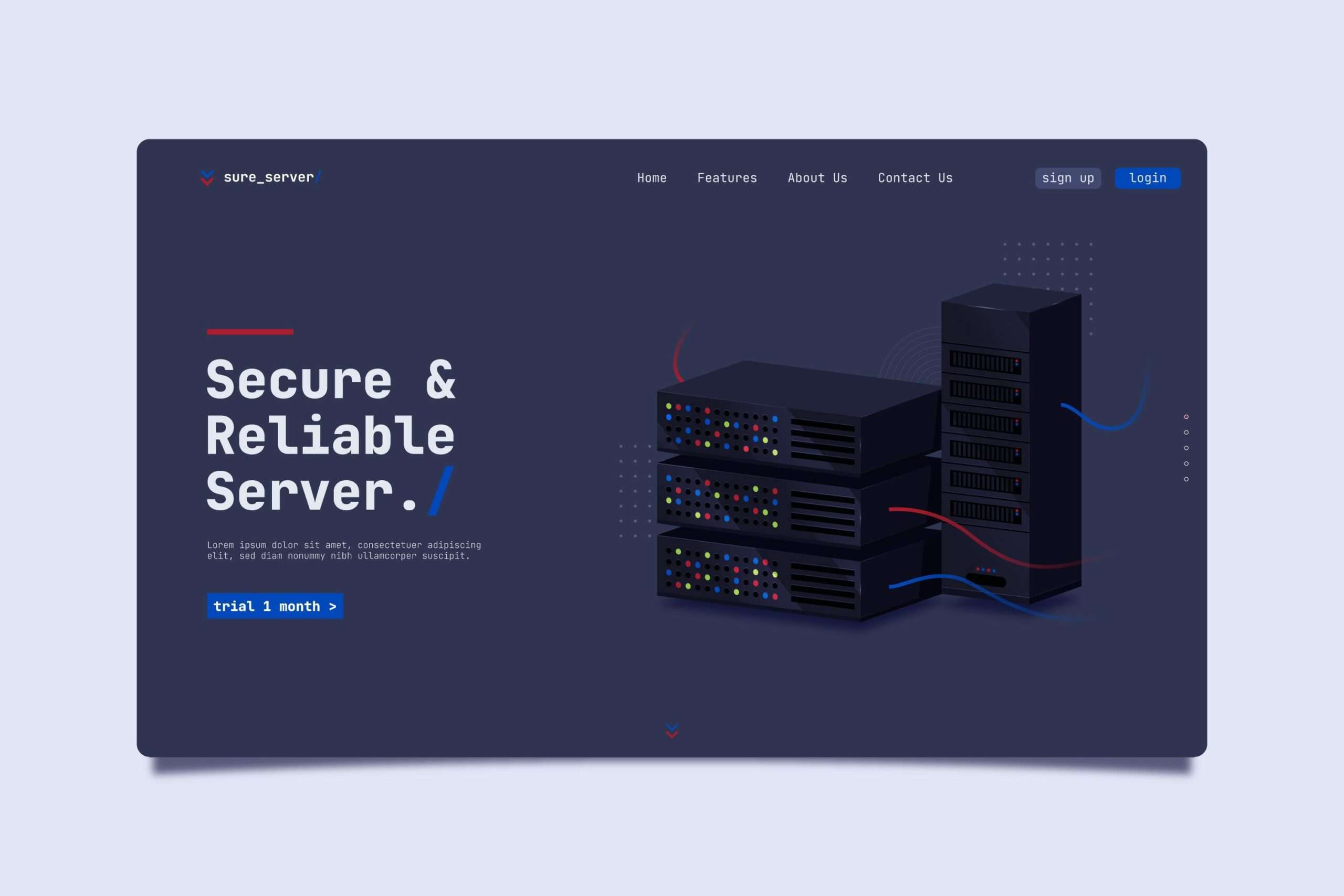Think about how great it would be to build a huge, beautiful skyscraper. Now, picture putting it up on shaky ground with a bad foundation. The whole building is in danger, no matter how beautiful the outside, how luxurious the inside, or how high-tech the elevators are. Your web host is the most important part of your website, just like the foundation of a skyscraper. Your digital dreams can fall apart without a strong, reliable, and safe host.
Performance: The Hidden Force That Moves Your Business
Money is speed in 2025. People expect websites to load quickly in a world where they can get what they want right away. Research shows that even a one-second delay in page load time can cause a 7% drop in conversions, an 11% drop in page views, and a 16% drop in customer satisfaction (Kissmetrics). Google’s search engine ranking algorithms take site speed into account a lot, in addition to how well the site works for users. A site that loads slowly isn’t just a pain; it’s the end of the world for SEO.
Your web host is a huge part of this:
Server Hardware: Does your host use NVMe SSDs (Solid State Drives) or even faster SSDs? These are much faster than regular hard disk drives (HDDs) when it comes to accessing and transferring data.
Are you getting enough CPU, RAM, and I/O (Input/Output) resources for your server? Shared hosting is cheap, but it can have “noisy neighbor” problems where another site on the same server uses too many resources, which slows down everyone else. A good web host takes care of this well.
Network Infrastructure: A good web host puts money into strong network connections, peering agreements with big ISPs, and smart routing to make sure that data gets to your users quickly and efficiently.
Caching Mechanisms: A lot of hosts offer or use server-side caching technologies (like LiteSpeed Cache for WordPress) that cut down on server load and speed up page delivery.
Security: Your Digital Fortress Against Changing Threats
The internet is a wild place, and cyber threats are getting smarter all the time. Your website is always a target for things like data breaches, malware infections, DDoS attacks, and phishing attempts. Your web host is the first thing you should protect. If your provider doesn’t take security seriously, your data, your customers’ data, and your reputation are all in danger.
Your web host needs to have these important security features:
SSL/TLS Certificates: These are necessary for encrypting data between your site and visitors, building trust, and improving SEO (Google flags sites that don’t use HTTPS). A lot of trustworthy hosts now give out free SSL certificates (like Let’s Encrypt).
DDoS Protection: Systems that can find and stop Distributed Denial of Service attacks that try to bring down your site by flooding it with traffic.
Web Application Firewall (WAF): Blocks and filters harmful traffic at the application layer to protect against common web vulnerabilities.
Backups that happen automatically and on a regular basis are a must. Your web host should back up your site every day or often, and the backups should be stored off-site and easy to restore. It can be very bad to lose a website because of a hack or mistake.
Malware Scanning & Removal: Tools that scan your site for harmful code and help you get rid of it before it can do any damage.
Server Hardening and Patching: Your web host needs to keep the server software up to date and apply security patches carefully to keep known vulnerabilities from being used.
Physical Data Center Security: Secure buildings with limited access, cameras, and backup power.
As Rwanda’s digital economy grows and more sensitive transactions happen online, businesses need a secure web host more than ever.
Scalability: Making Sure Your Digital Goals Will Last
Your hosting solution shouldn’t be static either, just like your business. What works for your current traffic may not be able to handle the growth that comes next. A good web host lets your website grow with your business without having to move it or pay for expensive upgrades.
Things to think about when it comes to scalability:
- Easy Upgrade Paths: Is it easy to switch from shared to VPS, VPS to dedicated, or add more cloud resources with little downtime and technical problems?
- Elastic Resources: Does the plan you choose (especially if it includes cloud hosting) let you change how resources are allocated on the fly? This means you can add more CPU, RAM, or storage automatically or by hand when traffic is high and take it away when traffic is low, which saves you money.
Pay-as-you-go pricing models are common among cloud web hosts. These models are great for managing changing resource needs because you only pay for what you use.
Reliability and Uptime: Your Storefront Is Always Open
When your business is down, you lose money, leads, and a lot of credibility. Think about how your store would be closed for hours during the busiest shopping times. Your website is the same way. A good web host promises that their servers will be up 99.9% of the time or more. While 100% is often not possible, it is very important to keep downtime to a minimum.
Things that affect reliability:
Redundant infrastructure means that there are multiple power sources, network connections, and servers so that if one fails, another one takes over right away, keeping the system running.
Proactive Monitoring: Your web host should have advanced systems that keep an eye on server health, network traffic, and possible problems all the time. This lets them fix problems before they cause downtime.
Data Center Quality: Look for certifications like Tier III or Tier IV. These show that the data center has certain levels of redundancy, fault tolerance, and guaranteed uptime in its design and operation.
Help: Your Lifeline in the Digital Maze
Even the best technology can run into problems that weren’t planned for. When this happens, having good, quick, and always-available customer support from your web host is very helpful. A lot of businesses lower their prices in this area, but they regret it when they have a big problem and can’t get help.
What to expect from your web host’s support:
Availability 24 hours a day, 7 days a week, 365 days a year: Problems with your website don’t follow business hours. It’s very important to have live support all the time.
Multiple Channels: Live chat, phone support, email, and a strong ticketing system give you options.
Knowledgeable and responsive staff: Can they fix complicated technical problems instead of just reading from a script? Do they know what your specific CMS (like WordPress) or app needs are?
Dedicated Account Manager: Having one person to talk to makes it easier to communicate and solve problems for larger plans or business solutions.
A self-service library of articles and tutorials can help you solve common problems on your own.
Tip: Don’t just believe what they say. Before you sign up for a web host, make sure their support works. Ask them a few technical questions in their live chat and see how long it takes them to respond and how well they answer. This is like a real-life emergency.
The Most Important Pre-Selection Assessment: Understanding Your Needs
Slug: understanding-your-needs-crucial-pre-selection-assessment
You need to know exactly what your business needs before you even look at the pricing page of a web host. This isn’t a technical task; it’s a strategic look into your digital future.
1. Set goals and a purpose for your website
What is the main purpose of your website? What do you want it to do?
Informational/Brochure Site: Not a lot of traffic, content that doesn’t change, and basic needs. (for example, a small business showing off its services).
Blog/Content Hub: Moderate to high traffic, regular updates to content, and good database performance and caching are needed. For example, a news site or a platform for thought leadership.
Online store: lots of visitors, safe payments (PCI compliance), a strong database, high performance, and real-time inventory. (e.g., a service booking site or an online store).
SaaS Application/Web App: needs a lot of resources, custom settings, complicated database interactions, developer tools, and uptime that is critical to the mission. For example, a CRM system or a project management tool.
Portfolio/Lead Generation: Moderate traffic, focus on high-quality images, contact forms, and connections to CRM. (e.g., the site of a creative agency or a consulting firm).
Internal Company Portal: Security, user management, possibly a lot of users at the same time from within the company, and often works with other internal systems.
A helpful tip is to get ideas from important people in your company, like people in marketing, sales, IT, customer service, and even human resources. The needs of each department will be different, which will affect your choice of web host.
2. Plan for your current and future traffic and resource needs.
Be honest about how much traffic you have right now, but also hopeful and smart about how to grow. It’s not just about today; it’s also about getting ready for tomorrow.
Current Metrics: Use Google Analytics, Google Search Console, or the statistics from your current web host to find out how many unique visitors, page views, and, most importantly, peak traffic times you get each day or month. What time of day does your site get the most traffic?
Are you planning big marketing campaigns, product launches, sales spikes during the holidays, or expansion into other countries? Think about how traffic might spike. By mid-2025, 86.4% of Rwandan internet users will have smartphones (DataReportal, January 2025). This means that mobile traffic and app usage are very important for Rwandan businesses.
Content Volume and Type: How much space do you need to store pictures, videos, documents, and database records? Is most of your content static, or is it dynamic and created by users (like forums and user profiles)? Video content, in particular, takes a lot of resources.
Database Activity: If your site relies heavily on databases, like e-commerce sites, membership sites, or content management systems like WordPress with a lot of plugins, you will need more CPU and RAM.
Tip: Make a plan for how your business will grow over the next year and three years. It’s much easier and less disruptive to choose a web host that can handle future growth than to have to move every year.
3. Think about your budget (not just how cheap it is)
Cost is always a factor, but it’s a big mistake to think of web hosting as a commodity where “cheapest is best.” If you choose the wrong web host, you could lose sales, hurt your brand’s reputation, have to pay for expensive technical fixes, and miss out on opportunities that are much bigger than the savings you thought you were getting.
Costs for the first time vs. costs for renewal: Be very careful with introductory rates that are very low but go up a lot when you renew. Check the long-term prices all the time.
Hidden Fees: Look closely at the terms to see if there are extra charges for things like backups, SSL certificates, domain privacy, dedicated IPs, or advanced support.
Value for Money: Look at what you get for the price, such as features, performance guarantees, security, and the level of customer support. Investing in a web host that costs a little more but keeps your site up and running is a much better idea.
Tip: Make a detailed budget for your hosting for the next 2–3 years, including any possible increases in the renewal rate and any extra features you might need. This gives a better idea of how much it really costs to own.
4. Check how good your team’s technical skills are
Who will be in charge of the hosting? This tells you how much “management” your web host needs to give you.
Non-technical Team/Small Business Owner: You need a web host with a very easy-to-use control panel (like cPanel or hPanel), great support around the clock, and ideally, “managed” services (like Managed WordPress hosting or Managed VPS), where the host takes care of server maintenance, updates, and security.
Internal IT/Dev Team: Your team may want root access, SSH, certain operating systems (Linux/Windows), and more advanced developer tools. They might be fine with “unmanaged” VPS or dedicated servers, which give them full control but require them to know how to manage the servers themselves.
External Web Designer/Developer/Agency: Your outside partners will usually have preferences based on how they work and what they’ve done in the past. Get them involved early.
If your team doesn’t have the technical know-how, don’t choose an unmanaged solution, no matter how tempting the lower costs may be. The operational headaches, security risks, and possible downtime will quickly make any initial financial benefits go away. The number of people in Kigali who can do web development is growing, but make sure that the hosting you choose fits with what your team can do right now.
Understanding the Different Types of Web Hosts
Slug: navigating-hosting-landscape-types-web-hosts-explained
There are many different web hosting options, each with its own pros and cons and best uses. To choose the best web host, you need to know these basic types.
1. Shared Hosting: The First Step
Idea: Your website is hosted on a single physical server with hundreds or even thousands of other websites. These websites share the server’s CPU, RAM, and disk space.
Pros:
Most Affordable: Great for new businesses and small businesses that don’t have a lot of money.
Easy to Use: Usually comes with a control panel (cPanel, hPanel) that is easy to use and software that is already installed.
Low Maintenance: The web host takes care of all server security and maintenance.
The bad things are:
Limited Resources: If a “noisy neighbor” uses too many resources, performance may suffer.
Limited Control: You can’t change the settings on your server very much.
Security Risks: Hosts try to keep sites separate, but a flaw on one site could affect others (though good hosts try to keep this from happening).
Not Scalable for Growth: As traffic or resource-intensive apps grow, it will quickly reach its limits.
Best For: Personal blogs, small brochure websites, informational sites with very few visitors, and new businesses that want to test their online presence without spending a lot of money.
Company Context: This is a good way for Rwandan startups with small budgets to get started, but it’s often only a short-term fix.
2. VPS (Virtual Private Server) Hosting: Your Own Digital Apartment
A physical server is split into several virtual servers, each of which works as a separate entity with its own set of resources (CPU, RAM, disk space). It’s like living in your own apartment in a bigger building.
Pros:
Dedicated resources: better performance and less interference from other websites.
More Control: With root access, you can install your own software and set up your server the way you want.
Scalable: It’s easier to add more resources as you need them without having to change the whole server.
Better Security: More separation than with shared hosting.
Disadvantages:
More Expensive than Shared: Costs more because of dedicated resources.
Requires Technical Expertise (for unmanaged VPS): If you don’t manage the server yourself, you are responsible for its security, updates, and management.
Shared Hardware: Even though resources are set aside, the physical hardware is still shared.
Best for: businesses that are growing, e-commerce stores with a lot of traffic, developers who need specific software environments, bigger blogs, and companies that need more control and guaranteed resources than shared hosting can give them.
Company Context: This is often the sweet spot for many small and medium-sized businesses in Rwanda that are moving from a simple online presence to more complex operations.
3. Dedicated Hosting: Your Own Digital Tower
You rent a whole physical server, which means that all of its resources are yours.
Pros:
Maximum Performance: No “noisy neighbors”; all the power is yours.
Ultimate Control: You have full root access and full control over the server’s operating system, software, and configuration.
Better security: you are completely cut off from other users.
Very reliable: great for applications that are very important.
Disadvantages:
Most Expensive: High cost because you can only use the hardware for one thing.
Requires a lot of technical knowledge (for unmanaged dedicated): You are in charge of all server management, maintenance, and security.
Problems with scalability: Moving to a more powerful dedicated server can be disruptive when you scale up.
Best for: big businesses, e-commerce sites with a lot of traffic, complicated web apps, media streaming platforms, and businesses that need to meet strict security or compliance standards (like banks).
Company Context: This is usually for big businesses or government agencies in Rwanda that have a lot of digital work and IT teams that work on it full-time.
4. Cloud Hosting: The Network that Stretches and Spreads
Your website is hosted on a network of virtual servers that are all connected and get their resources from a huge infrastructure. People can pool resources and use them when they need them.
Pros:
Unmatched Scalability: You can easily change the amount of resources you have available at any time based on your needs (elasticity). Many people use pay-as-you-go pricing.
High reliability and uptime: If one server goes down, another one in the network takes over without any problems, which cuts down on downtime.
Global Reach: You can send content to many data centers all over the world.
Cost-Effective for Changing Traffic: You only pay for the resources you use.
Disadvantages:
Complexity: It can be harder to manage than shared or VPS, but managed cloud solutions make this a lot easier.
Cost Management: Pay-as-you-go is flexible, but if you don’t keep an eye on it, unexpected traffic spikes can make your bills go up.
Best For: Websites that sell things online, SaaS apps, websites with a lot of traffic that isn’t always the same, big agencies that manage a lot of client sites, and businesses that want to be able to stay online as much as possible and be flexible.
Company Context: More and more Rwandan businesses and tech startups are choosing this option because it offers strong, scalable, and resilient infrastructure.
5. Managed WordPress/CMS Hosting: The Best Option
The idea is that a web host will optimize and manage a type of hosting for a specific Content Management System (CMS), mostly WordPress, which powers more than 40% of the web. The host takes care of all the CMS’s server management, security, updates, and performance tuning.
Pros:
Optimized Performance: Servers are set up just right for the CMS, which makes them faster and more stable.
Improved Security: CMS-specific security features like scanning for malware and fixing bugs.
Automated Maintenance: Automatic backups, core updates, and plugin updates (often).
Expert Help: The people who help you know a lot about the CMS you are using.
Developer Tools: Often come with staging environments, Git integration, and strong caching.
Drawbacks:
More Expensive: Because of the specialized services, it costs more than generic shared or VPS hosting.
Not as flexible: mainly made for the specific CMS; not great for other uses.
Best For: Any business that uses WordPress (or Joomla, Drupal, etc.) for their website, from small businesses to big publishers and online stores (especially WooCommerce).
Company Context: Many Rwandan businesses that use WordPress for their online presence would be better off with this option because it lets them focus on content and strategy instead of server management.
Tip: Don’t always choose the cheapest option. Instead, choose a hosting type that fits your website’s current needs and its expected growth. A small amount of money spent now on a better web host can save you a lot of trouble and money in the future.
The Deep Dive: Important Things to Look for in a Web Host
Slug: deep-dive-key-criteria-evaluating-web-host
It’s time to look closely at possible web host providers now that you know what you need and what kinds of hosting are available. This list goes beyond the basics to help you find the right partner.
1. Speed and uptime are the most important performance metrics.
Don’t just look at a “uptime guarantee”; look deeper.
Actual Uptime Records: You can ask for or find independent reports on a host’s actual uptime. Even with 99.9% uptime, there is still almost 9 hours of downtime each year. Less than an hour means 99.99%.
TTFB, or Server Response Time, is how quickly the server answers a request. A quick TTFB (Time To First Byte) is very important for the speed of the whole site. Use tools like GTmetrix or WebPageTest.org to test.
Hardware Specs: Look for NVMe SSD storage, a lot of RAM, and modern CPU designs.
Network Capacity: A web host with fast network connections makes sure your data moves quickly.
Caching Technologies: Support for server-side caching (like LiteSpeed Cache and Varnish) or caching solutions that come with the software.
Tip: Don’t just believe what marketers say. Look for reviews from people who aren’t connected to the product and look for real-world performance tests from a variety of sources.
2. Strong security features: your digital guard dog
A full security suite is a must-have.
Backups happen every day, off-site, and with a simple one-click restore option. Find out what their policy is for keeping backups.
Free SSL/TLS certificates are important for security, SEO, and building trust with users.
Advanced Firewalls: These are both hardware and software firewalls (like WAFs) that stop bad traffic.
Malware scanning and removal: tools that find infections and clean them up.
DDoS protection is very important for big businesses and online stores.
For your hosting control panel, you need two-factor authentication (2FA/MFA).
Proactive Server Monitoring: 24/7 monitoring for unusual activity and possible weaknesses.
Compliance Certifications: Some industries, like e-commerce that follows PCI DSS rules and healthcare that follows HIPAA rules, need specific certifications.
Useful Tip: When talking to potential web hosts, ask them about their security measures, how often they patch servers, and what their plan is for recovering from disasters.
3. Easy to Grow and Upgrade: No More Growing Pains
Different Plan Options: Does the web host make it easy to move from shared hosting to VPS, dedicated hosting, and then to cloud hosting?
Flexible Resource Allocation: Is it easy to add more CPU, RAM, or storage with just a few clicks in the control panel?
Managed vs. Unmanaged Options: If you get better at technology, can you switch to having more control, or the other way around?
Pricing for Scaling: Learn how the cost changes as you add more resources.
Tip: Don’t just think about what you need right now; think about how your business will grow over the next 3 to 5 years and choose a web host that can easily handle that growth without having to move everything.
4. The Human Touch: Unmatched Customer Support
This is often what makes or breaks the hosting experience.
Availability: 24 hours a day, 7 days a week, 365 days a year through many channels (phone, live chat, and ticketing).
Response Times: What are their promised response times for different levels of priority?
Expertise: Can their support team fix complicated technical problems, or do they only offer basic help? Look for support staff who know a lot about server technologies and popular CMSs like WordPress and Joomla.
Language Support: English is widely spoken in Kigali, but if your team or target audience needs it, check to see if there is support for more than one language.
Knowledge Base & Tutorials: A full, easy-to-search knowledge base for self-help.
Tip: Talk to their support team before you buy. Ask a hard question about technology. Their answer will tell you a lot about how good their service is.
5. Location of the Data Center and CDN: Close for Speed
Geographic Proximity: If your main customers are in Rwanda or East Africa, a web host with data centers in Europe, the Middle East, or, more and more, South Africa will have lower latency than one with data centers only in North America.
A Content Delivery Network (CDN), such as Cloudflare or Akamai, stores your website’s static content (images, CSS, JS) on servers all over the world and sends it from the server that is closest to the user. This makes things much faster for a wide audience. A lot of good web hosts work with or give away free CDN services.
Ask potential web hosts about their data center network and how their CDN works with it. This is very important for making sure that delivery works well in a growing online market in your area and around the world.
6. Technology Stack and Compatibility: Understanding Your Website’s Language
Make sure that the web host can handle the technologies that your website uses.
Linux is the most common operating system and works with PHP, MySQL, and WordPress. Windows works with .NET and MS SQL Server.
PHP versions, Python, Node.js, Ruby, Java, and other programming languages Make sure they work with the most recent stable versions.
MySQL, PostgreSQL, MSSQL, and MongoDB are all databases.
You can use cPanel, Plesk, or a custom panel as your control panel. Make sure your team finds it easy to use for managing emails, files, databases, and domains.
CMS Compatibility: Make sure that the web host is set up to work with WordPress, Joomla, Drupal, Magento, or another CMS. Some hosts even offer managed hosting just for that CMS.
Tip: Ask your developers or web designer for a clear list of the technology stack your website is currently using, and then compare it to what the potential web host has to offer.

7. What are other people saying about the business?
Don’t believe the ads. Look for feedback that isn’t biased.
Check out trustworthy third-party review sites like Trustpilot, G2, HostingAdvice.com, and forums for your industry.
Case Studies: Find businesses that are like yours and are doing well on their platform.
Social Media and Forums: Look for posts and conversations about the web host on social media and developer forums.
Tip: Look at reviews from the last 12 to 18 months because the quality of hosting can change. Check for trends in feedback about uptime, support, and hidden fees.
8. Read the small print about prices and guarantees!
Renewal Rates: This is the most common hidden shock. Initial discounts are usually big, but renewal rates can be much higher. Make this clear from the start.
Money-Back Guarantee: You can try the service without any risk for 30 days (or longer) and get your money back.
Service Level Agreement (SLA): Know what their uptime guarantee is. What do you get paid for downtime, if anything?
Cancellation Policy: How easy is it to cancel if you don’t like it?
Tip: Always make sure you know the real total cost for the first year and the years that follow. Do the math yourself, including any necessary extras.
9. Developer Features: Power and Ease of Use
Staging environments are very important for testing changes to your website without affecting the live site.
Git Integration: For developers, it works perfectly with version control systems.
SSH Access: For command-line access and more advanced server management.
Cron Jobs: To set up tasks that run on their own.
One-Click Installers: For well-known CMSs and programs.
If you have an in-house development team or work with a web designer, ask them to help you look over these features. The right tools will make a huge difference in how they work.
10. Green Hosting Projects: Taking Care of the Environment
More and more web hosts are focusing on being eco-friendly.
Renewable Energy: Using solar, wind, or hydroelectric power to run data centers.
Energy Efficiency: Using hardware and cooling systems that are set up to work best.
Carbon Offsetting: Putting money into projects that help the environment to cancel out their carbon footprint.
If corporate social responsibility is important to your brand, choose a web host that shares your values. This can be a small but strong way to set your brand apart.
The Best Web Hosting Companies for Different Needs in 2025
Slug: top-web-host-contenders-2025
There is no one “ideal” web host, but some providers consistently do well on a number of criteria, making them strong candidates depending on what your business needs. (Note: The market is always changing, so make sure to check what’s available now.)
1. Hostinger: The Best Value and Performance
Hostinger has quickly become a favorite for many, especially those in developing markets, because of its low prices and high performance. They use LiteSpeed web servers and SSD storage in all of their plans.
Why for Businesses: Great speed-to-price ratio, easy-to-use hPanel control panel, free SSL and domain (on annual plans), multiple data centers around the world (including Europe and Asia, which is good for reaching Africa), and live chat support 24/7. Great for small and medium-sized businesses (SMBs) and new businesses that want a strong start at a low cost.
Best For: Small to medium-sized businesses, new businesses, e-commerce sites on a budget, and content creators who need good performance without spending a lot of money.
Interlink Suggestion: If you’re looking for cheaper options, check out “Smart Spending: Getting Quality Web Hosting Without the Premium Price Tag.”
2. SiteGround: High Performance and Managed WordPress
SiteGround is a well-known web host, especially for WordPress users. It is known for its fast performance, proactive security, and great customer service, all of which are built on Google Cloud infrastructure.
Why for Businesses: Faster speeds (thanks to Google Cloud and custom optimizations), stronger security (daily backups, WAF, AI anti-bot systems), tools that are easy for developers to use (staging, Git integration), and 24/7 expert support that really knows WordPress and website problems.
Best For: Medium to large businesses that use WordPress, WooCommerce stores, high-traffic blogs, and agencies that manage more than one client site where reliability and performance are very important.
Interlink Suggestion: Check out our “Ultimate WordPress Speed Optimization Checklist” to learn more about how to speed up your WordPress site.
- Cloudways: The Power of Managed Cloud Made Easy
Cloudways is not a regular web host; instead, it is a managed hosting platform that runs on the best cloud infrastructure providers, such as AWS, Google Cloud, DigitalOcean, Linode, and Vultr. You get cloud power without the hassle because they take care of the server management.
Why for Businesses: Unmatched scalability and flexibility (pay-as-you-go pricing), extreme performance, high reliability through distributed architecture, and servers that are fully managed. Great for businesses that get traffic that changes or grows quickly.
Best for: e-commerce, SaaS apps, businesses that are growing quickly, agencies that work with a lot of different clients, and companies that need strong, flexible infrastructure but don’t have a dedicated DevOps team.
Interlink Suggestion: Read our “Cloud Computing for Enterprises: A Strategic Advantage” article to learn how cloud computing can change your business.
4. Kinsta: The Best Managed WordPress Hosting
Kinsta is the best managed WordPress hosting service out there. It is built entirely on Google Cloud’s premium tier network. If your WordPress site is very important to your business and you don’t mind spending a little more money for better performance and less work, Kinsta is a great option.
Why for Businesses: Super-fast performance (server-level caching, CDN integration, latest PHP versions), rock-solid security, automatic daily backups, free expert migrations, and great technical support for WordPress available 24/7. Their MyKinsta dashboard is very easy to use.
Best for: big companies, e-commerce sites with a lot of traffic (WooCommerce), media publishers, and agencies that run WordPress client sites that need to perform well.
For businesses that want to grow their WordPress sites, Interlink Suggestion: Check out “Mastering WordPress SEO: Beyond the Basics.”
5. Liquid Web: Dedicated and VPS Solutions That Are Fully Managed
Liquid Web’s main focus is on “Heroic Support.” They offer fully managed dedicated servers, VPS, and cloud hosting solutions, mostly for businesses that need a lot of resources but don’t want to have to deal with server administration.
Why for Businesses: Great “human” support, a strong infrastructure for demanding apps, proactive monitoring, and full management that lets your internal IT team focus on other things. Perfect for businesses that don’t have a big IT department but need a lot of custom resources.
Best For: Large online stores, complicated custom apps, businesses with sensitive data that need dedicated resources, and people who need high-performance VPS or dedicated solutions that don’t require much management.
Interlink Suggestion: Read “Why Managed IT Services Are Essential for Modern Businesses” to find out why managed services are becoming necessary for businesses today.
Useful Advice for Living with Your Perfect Web Host
Slug: useful tips for everyday life with the best web host
You have to do more than just pick the right web host. Daily management that works keeps your website safe, healthy, and fast. These tips work no matter which provider you choose.
1. Keep an eye on your website’s health all the time.
Don’t wait for Google or your customers to tell you that your site is down or slow.
Uptime Monitoring: Use a third-party service like UptimeRobot or Freshping to get an alert right away if your site goes down or stops responding. You can set up alerts to come to you by email, text message, or Slack.
Performance Monitoring: Use tools like Google PageSpeed Insights, GTmetrix, or Pingdom Tools to check your site’s speed on a regular basis. Keep an eye on important numbers like TTFB and FCP (First Contentful Paint).
Check Google Search Console every day or week for crawl errors, security issues, manual actions, and indexing problems. It’s your direct line to Google.
Analytics Tracking: Use Google Analytics to keep an eye on trends in traffic, bounce rates, and conversion rates. Sudden drops can mean that there are problems with the hosting or the website itself.
Tip: Use these monitoring tools every day or every week as part of your routine. Give someone on your team (like the marketing lead, IT manager, or web designer) the job of checking these dashboards.
2. Use a backup plan with multiple layers
Your web host makes backups, and you should definitely use them. But a truly resilient company makes sure there are extra copies.
The 3-2-1 Rule says that you should have at least three copies of your data, store them on two different types of media (like your host’s server and an external hard drive), and keep at least one copy offsite (like in the cloud with Google Drive, Dropbox, or a separate backup service).
Automate and Verify: Make sure your backups are done automatically, and every so often (like once a month or once every three months), do a test restore to a staging environment to make sure your backups are still good and can be used.
Email Backups: If your web host handles your email, make sure they are backed up as well. You might also want to switch to a dedicated email service like Google Workspace or Microsoft 365, which often comes with strong backup options.
Tip: Put a “backup audit” on your calendar every so often. This is a task that must be done to avoid losing a lot of data.
3. Your ongoing duty is to be proactive about security
.
Your web host gives you the tools you need, but you are in charge of your application and how users use it.
Strong, Unique Passwords & MFA: Make sure that all of your hosting, CMS, and related accounts have strong, unique passwords. Use Multi-Factor Authentication (MFA) wherever you can.
Regularly update your CMS (like WordPress), themes, and plugins. Hackers can get into your system most easily through old software. Set up a staging environment to test major updates before you roll them out.
The Least Privilege Principle says that you should only give users (including your web designer and other team members) the access they need to do their jobs.
Security Audits: For sensitive websites like e-commerce, think about doing vulnerability scans and penetration tests on a regular basis.
Train all of your employees on how to handle data safely, how to spot phishing emails, and how to follow cybersecurity best practices.
Use a business password manager to make and keep strong, one-of-a-kind passwords for all of your digital assets.
4. Keep improving your website’s assets all the time.
Even the best web host can’t make up for a website that isn’t optimized.
Image and Video Optimization: Before you upload, make sure to compress all of your videos and pictures. Use new formats like WebP.
Minifying code means making CSS, JavaScript, and HTML files smaller. Your web host might have tools for this.
Use caching wisely: Make sure that your website’s caching is set up correctly (browser caching, server-side caching, object caching).
Using a CDN: If your web host works with a CDN, make sure it is set up correctly and being used.
Tip: Use performance auditing tools on a regular basis and follow their advice. This is something that needs to be done all the time, not just once. This should be led by your web designer or development team.
5. Know how to use the features of your host
You have picked the best web host. Now make the most of it!
Mastering the Control Panel: Get to know your web host’s control panel, which could be cPanel, hPanel, Plesk, or a custom dashboard. Find out where to find email setup, domain settings, file managers, database tools, and backup options.
Staging Environments: Use staging environments for all major website updates or new feature deployments if your web host offers them. This stops your live site from breaking.
Developer Tools: Use Git integration, SSH access, and Cron Jobs for automation if you can.
Host-Specific Optimizations: A lot of hosts have their own caching, security, or performance features. Read their instructions and turn them on.
Tip: Set up a short “feature exploration” session with your team or web designer soon after you sign up for a new web host. Know what tools you have at your disposal.
6. Get help to communicate well
Clear communication saves time and cuts down on frustration when problems come up.
Give Information: When you get in touch with support, give them as much information as you can, such as what you were doing, what happened, any error messages, screenshots, and the exact times when it happened.
Be Patient and Polite: Even though it can be annoying, being polite often helps things get better and faster.
Follow Directions: Make sure to carefully follow any steps for fixing problems that support gives you.
If the problem is still happening, look at the numbers of the previous tickets.
Tip: Write down all of your support interactions, including ticket numbers and solutions. This helps keep track of problems that keep coming up and shows that you are doing your job.
The Future of Hosting: What Will Happen Next with Your Web Host?
Slug: What will happen to your web host in the future?
The digital world is always changing, and web hosting is changing quickly to keep up with new needs. Knowing about these new trends can help you get ready for the future and make long-term plans for your web host.
1. Using AI and machine learning in hosting operations
AI is no longer just a trendy term; advanced web hosts are using it in their main operations.
Predictive Analytics: AI algorithms look at server logs and traffic patterns to find possible hardware failures, resource bottlenecks, or security threats before they happen. This lets you do maintenance before it needs to be done.
Better Cybersecurity: AI-powered systems are getting really good at spotting threats in real time, finding unusual behavior, and stopping advanced cyberattacks (like zero-day exploits) faster and more accurately than older methods.
Automated Resource Optimization: Machine learning can automatically assign server resources based on current demand. This makes sure that the server is always running at its best, even when there is a lot of traffic, and that it is cost-effective when there is little traffic. This is what makes hosting truly “elastic.”
Smart Support: AI chatbots and virtual assistants take care of simple customer questions, which lets human support staff focus on more complicated, personalized problems.
2. Combining Edge Computing and 5G
A big trend is to move computation and data storage closer to the source of the data, which is the “edge” of the network.
Less latency is important for apps that need to interact in real time (like gaming, IoT, and video conferencing) and for getting content to users who are far apart faster.
Distributed Resilience: By processing data closer to the user, the system doesn’t have to rely on a single central data center as much, which makes it more reliable and available.
5G Acceleration: The ongoing global rollout of 5G networks (like MTN Rwanda’s launch in Kigali in June 2025) gives edge computing the high-speed, low-latency connectivity it needs to work for more applications. Your web host will need to keep up with these new network features more and more.
3. Maturity of Serverless Computing and Containerization
These technologies are changing the way applications are made and put online, and web hosts are changing to give them strong platforms.
Serverless Computing: lets developers make and run apps without having to worry about servers. The web host (or cloud provider) takes care of all server provisioning, scaling, and patching in real time. You only pay for the time it takes to do the work. Great for APIs, event-driven functions, and microservices.
Containerization (Docker, Kubernetes): Putting applications and their dependencies into lightweight, portable “containers” makes sure they work the same way in all computing environments (development, staging, production). A lot of web hosts now offer managed Kubernetes services or simple Docker deployment. This makes it much easier for web designers and developers to create and deploy their work.
4. Expansion of Green Hosting and Sustainability
Being environmentally responsible is no longer just a niche issue; it’s something that more and more people and businesses expect.
More web hosts are using only renewable energy sources (like solar, wind, and hydroelectric) to power their data centers.
Energy-Efficient Infrastructure: Putting money into servers, cooling systems, and data center design that use as little energy as possible.
Carbon Neutrality/Positive Goals: A lot of hosts are promising to be carbon neutral by using offsets or even trying to run their businesses in a way that is carbon positive.
When looking for a web host, ask about their efforts to protect the environment. This connects your brand with eco-friendly practices that appeal to environmentally conscious customers.
5. Hyper-Localized Hosting and Data Ownership
As digital economies grow, there is a growing need for local infrastructure and compliance with data protection laws.
Better Local Performance: For businesses that mostly serve a national or regional audience (like many in Rwanda), having servers located in or very close to the country can make things a lot faster for local users.
Data Sovereignty: More and more, governments are passing laws that say certain types of data must be kept within the country’s borders. This is very important for industries that are heavily regulated, like finance and healthcare. You may need to pick a web host with data centers in your area.
Emergence of Local Players: The digital transformation in Rwanda (shown by projects like Kigali Innovation City and more people learning how to use technology) is helping to build up the country’s tech infrastructure, which could lead to more specialized local web hosting companies.
Tip: For Rwandan businesses, think about the trade-off between having a global reach (through international web hosts with CDNs) and the possible benefits of hyper-localization (for faster speeds and data compliance).
Conclusion: The Right Web Host Can Help You on Your Digital Journey
Slug: conclusion-empowering-digital-journey-right-web-host
Picking the right web hosting company is probably one of the most important things you can do to help your business succeed online. It’s the quiet, fundamental support that holds up everything from the safety and performance of your website to the reputation of your brand and the happiness of your customers.
This Ultimate Handbook for Choosing the Right Web Hosting Provider has given you a full set of tools. We’ve broken down the most important reasons why your web host matters, helped you carefully think about your specific needs before making a choice, and explained the different types of hosting environments that are available. We then went into great detail about the most important things to look for in a web host, such as performance, security, support, and developer features. We even looked at the best candidates for the 2025 landscape and gave you practical daily tips on how to make sure your website does well on its chosen home. Finally, we looked ahead to see how AI, edge computing, green initiatives, and localization will keep changing this important field.
Rwanda is on an amazing path to becoming a top digital economy, and there are endless opportunities for businesses online. When you choose a web host wisely and with a plan, you’re not just buying server space; you’re also investing in a digital presence that will last, work well, be safe, and be ready for the future.
So, don’t rush, ask the right questions, and use this guide. This is the base on which your company’s digital future depends. Pick wisely, and your online goals will take off.
source:
GTmetrix: https://gtmetrix.com/
WebPageTest.org: https://www.webpagetest.org/
UptimeRobot: https://uptimerobot.com/
Freshping: https://freshping.io/












